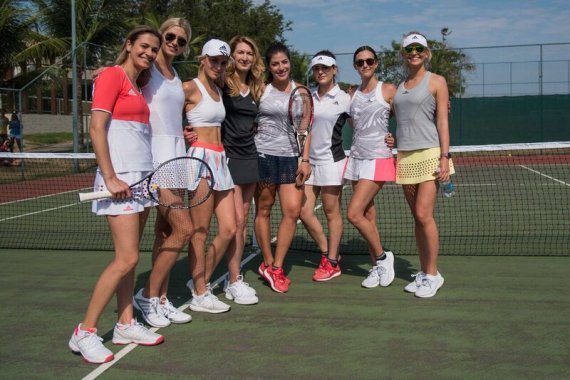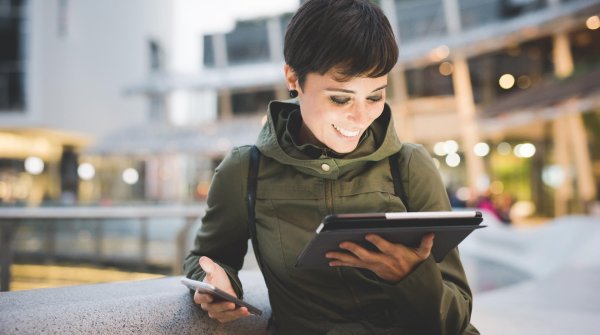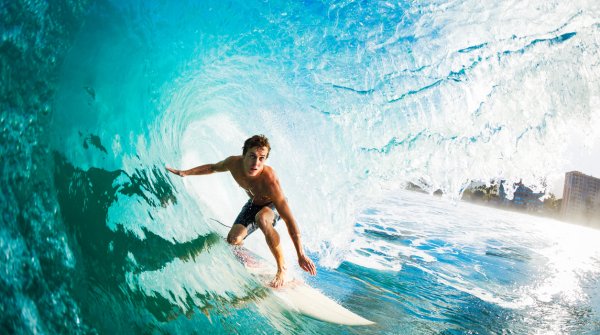
54.43 million people in Germany have tuned in to the Olympics on ARD and ZDF at least once. Hardly anyone can escape the fascination of sport with its premium event, the Olympic Games.
But how do you reach those who are not so easily inspired by Rio 2016? How do you reach a growing generation for whom the Olympics are primarily a scandal-ridden old man's pastime?
Adidas turns Rio 2016 into "Influencer Games".
With influencer marketing, says Adidas, which was not one of the official Olympic sponsors this time: "While the 2012 Olympic Games in London went down in history as the first 'Social Media Games,' adidas wants to make the Rio Olympics the first 'Influencer Games,'" the sporting goods giant from Herzogenaurach announced in response to a question from ISPO.com.
In the case of the Rio Olympics, that means, "As part of the 'Creators House' initiative, 20 of the world's best-known female influencers and bloggers were invited to Rio for a very special kind of activity. The influencers live together in a house, try different sports, attend sporting events and share their activities in Rio with their followers on social media."
20 attractive women (spread over the two Olympic weeks) in a house with a pool, constantly accompanied by photographers and present on all social media channels? Adidas invents its own Big Brother variant.
Social influencers with Adidas invitations (selection)
- Lena Gercke (model from Germany, 911k fans on Facebook, 1.3 million on Instagram)
- Caro Daur (blogger from Hamburg, 68k Facebook, 694k Instagram)
- Faya Nilsson (fitness blogger from UK, 25k Facebook, 105k Instagram)
- Adriene Mishler (fitness blogger from the US, 210k Facebook, 141k Instagram)
- Rachel Apollonio (model from Brazil, 23k Facebook, 1 million Instagram)
- Kéfera Buchmann (model from Brazil, 6.9m Facebook, 8.2m Instagram)
- Paulina Vega Dieppa (model from Colombia, 397k Facebook, 2.2 million Instagram)
Influencer marketing - actually quite simple
Influencer marketing is currently one of the hottest tools among advertisers and planners. This involves using the popularity of individual public figures, also known as multipliers or opinion leaders, in social networks.
The principle is quite simple: company invites influencer - for example to a product launch - influencer reports about it (very positively) on his social channels - fans get to know company and products.
The likelihood that fans will be inspired to buy by their idols is naturally very high.
But the most important thing in influencer marketing is authenticity. Dan Neale, co-founder of the London-based PR and social media agency Alfred, names the decisive attributes: "Unadulterated, relevant and authentic" must be the collaboration between multiplier and company.
Payment frowned upon in influencer marketing
Most marketing experts, on the other hand, agree that payment has no place in influencer marketing. "Once you pay an influencer to promote your product, you lose credibility and the influencer is no longer influential," they say again and again.
Adidas didn't care that much for its Rio project. Popular influencers like Lena Gercke, first winner of "Germany's next Topmodel," don't get excited about stakes like this without appropriate payment. Even if the sports-mad model was allowed to hit balls with tennis legend Steffi Graf for a few minutes.
Caro Daur receives no salary from Adidas
This is how pictures and videos are created that not only interest the classic media. The Facebook video of Steffi Graf and Lena Gercke's joint tennis session saw over 172,000 views.
A YouTube video by model Kéfera Buchmann about the Adidas "Creators House" in Barra, a suburb of Rio, dominated by three stripes, saw over 760,000 users. In the past, one would have said: surreptitious advertising at its best.
Not all of the influencers received money for their "services. Caro Daur, one of Germany's hottest fashion bloggers, only received the trip and some non-cash benefits such as shoes and clothing, Adidas tells ISPO.com: The Hamburg-based blogger, who is also very active on Snapchat (carodaur), "did not receive any remuneration for the duration of her stay."
No stipulations to influencers, Adidas says
In its influencer marketing project for Rio 2016, Adidas "made no stipulations or imposed any conditions on the invited influencers," the company informs. "A partnership relationship is very important to us."
The sports company will first evaluate whether the campaign, which probably cost Adidas a mid-six-figure sum of money, was a success and then announce it later.
"Horizont.net" has calculated that all posts by the women invited to the Creators House received over 1.6 million likes on Instagram.
Blogger raves about her "Adidas family"
In any case, the enthusiasm among social influencers about her Adidas trip to Rio is (expectedly) great. Caro Daur euphorically thanks the "dear Adidasfamily" in her blog: "The trip was simply epic and I hope we will visit and celebrate the upcoming Olympic Games as Brazilian-Swedish-English-American-German-Adidas-Takataka-GANG in four years."
On her homepage, Daur advertises some of her "favorite Adidas pieces. If you click on the links and buy from Zalando's online store, the blogger receives a commission - that's influencer marketing, too.
- Awards
- Mountain sports
- Bike
- Fitness
- Health
- ISPO Munich
- Running
- Brands
- Sustainability
- Olympia
- OutDoor
- Promotion
- Sports Business
- Textrends
- Triathlon
- Water sports
- Winter sports
- eSports
- SportsTech
- OutDoor by ISPO
- Heroes
- Transformation
- Sport Fashion
- Urban Culture
- Challenges of a CEO
- Trade fairs
- Sports
- Find the Balance
- Product reviews
- Newsletter Exclusive Area
- Magazine





